Filter by
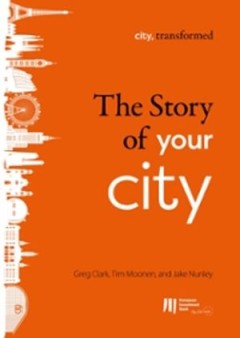
The story of your city
By the end of this century, 9 out of 10 Europeans will live in an urban area. But what kind of city will they call home? You'll find all the answers in CITY, TRANSFORMED, the new essay series from the European Investment Bank. This panoramic first essay in the series lays out a great sweeping history of European cities over the last fifty years—and showcases new directions being taken by some…
- Edition
- -
- ISBN/ISSN
- 9789286138669
- Collation
- -
- Series Title
- -
- Call Number
- 650
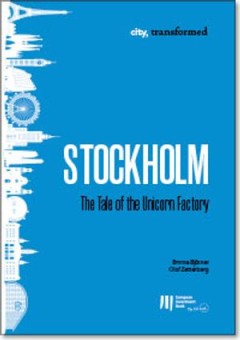
Stockholm : The Tale of the Unicorn Factory
Once upon a time there was a city in a cold place a long way to the north. One day the city started to tell a story about itself. As the chapters unfolded, life in the city changed, and soon it didn’t even seem so cold or far away any more. People listened to the story and realised that the city wasn’t quite what they expected. They started to tell the story to each other about how the city…
- Edition
- -
- ISBN/ISSN
- 9789286139116
- Collation
- -
- Series Title
- -
- Call Number
- 650
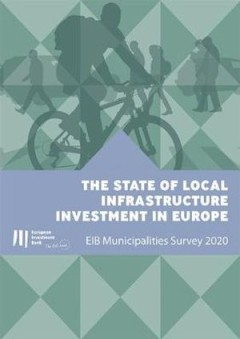
The state of local infrastructure investment in Europe
Europe’s COVID-19 recovery strategy calls for large-scale public investment to “building back better.” Municipalities account for 45% of all public investment – which makes them a key partner in recovery efforts. As poles of social and economic activities, municipalities will also be critical to addressing climate change and to improving digitalisation. Our municipality report analysis …
- Edition
- -
- ISBN/ISSN
- 9789286149542
- Collation
- -
- Series Title
- -
- Call Number
- 650

Smart Europe
A green digital economy could change the future of the Old Continent. The new Smart Europe will be based on three elements: new communication technologies, new sources of energy and new modes of mobility. But the transition will require a transformation of the continental infrastructure. Digitalisation, the Internet and renewables will play a major role in the so-called Third and Fourth Industr…
- Edition
- -
- ISBN/ISSN
- 9789286142772
- Collation
- -
- Series Title
- -
- Call Number
- 650
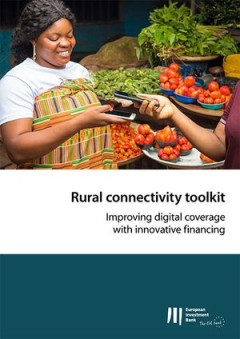
Rural connectivity toolkit : Improving digital coverage with innovative finan…
Africa’s digital transformation is generating big changes and benefits for many parts of the economy and society. But hundreds of millions of people still have no internet connections. For those who have internet access, prices can be high and bandwidth is often severely limited. Many African countries lack the technical capabilities and financing to plan big telecom projects that can fill th…
- Edition
- -
- ISBN/ISSN
- 9789286150227
- Collation
- -
- Series Title
- -
- Call Number
- 650
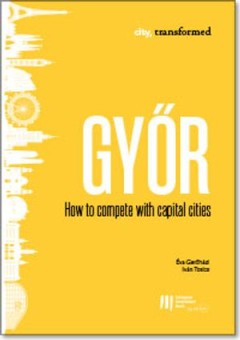
Gyor : How To Compete With Capital Cities
Located between three European capital cities, Győr has to work hard to attract investment and jobs. The Hungarian city has set itself up to attract innovative companies, creating new urban values such as education-based innovation, a high-quality urban environment and a lively cultural sphere. Here's how a “secondary city” builds on its industrial past even as it breaks away from its depe…
- Edition
- -
- ISBN/ISSN
- 9789286138874
- Collation
- -
- Series Title
- -
- Call Number
- 650
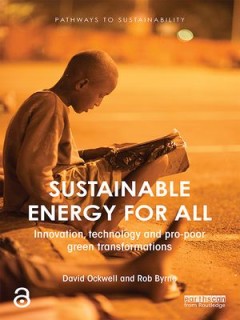
Sustainable Energy for All Innovation, technology and pro-poor green transfo…
Despite decades of effort and billions of dollars spent, two thirds of people in sub-Saharan Africa still lack access to electricity, a vital pre-cursor to economic development and poverty reduction. Ambitious international policy commitments seek to address this, but scholarship has failed to keep pace with policy ambitions, lacking both the empirical basis and the theoretical perspective to i…
- Edition
- -
- ISBN/ISSN
- 9781317220510, 131722051X
- Collation
- -
- Series Title
- -
- Call Number
- -
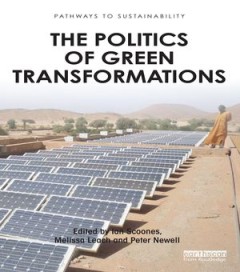
The Politics of Green Transformations
Multiple ‘green transformations’ are required if humanity is to live sustainably on planet Earth. Recalling past transformations, this book examines what makes the current challenge different, and especially urgent. It examines how green transformations must take place in the context of the particular moments of capitalist development, and in relation to particular alliances. The role of th…
- Edition
- -
- ISBN/ISSN
- -
- Collation
- -
- Series Title
- -
- Call Number
- -
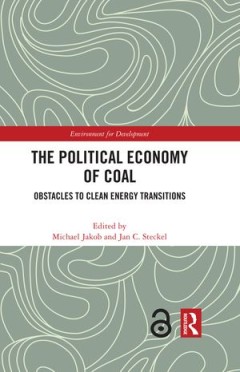
The Political Economy of Coal Obstacles to Clean Energy Transitions
This volume provides an overview of the political economy of coal in diverse country contexts.Coal is the largest source of greenhouse gas emissions globally, accounting for about 40 percent of energy-related CO2 emissions. Continued construction of coal-fired power plants could make the climate targets of the Paris Agreement infeasible to achieve. In spite of sharply declining costs for renewa…
- Edition
- -
- ISBN/ISSN
- 9781000551594, 1000551598
- Collation
- -
- Series Title
- -
- Call Number
- -
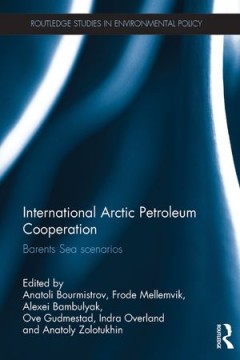
International Arctic Petroleum Cooperation Barents Sea Scenarios
The Arctic region contains large amounts of natural resources considered necessary to sustain global economic growth, so it is unsurprising that it is increasingly susceptible to political, economic, environmental, and even military conflicts. This book looks in detail at the preconditions and outlook for international cooperation on the development of Arctic petroleum resources, focusing on No…
- Edition
- -
- ISBN/ISSN
- 1317667425, 9781317667421
- Collation
- -
- Series Title
- -
- Call Number
- -
 Computer Science, Information & General Works
Computer Science, Information & General Works  Philosophy & Psychology
Philosophy & Psychology  Religion
Religion  Social Sciences
Social Sciences  Language
Language  Pure Science
Pure Science  Applied Sciences
Applied Sciences  Art & Recreation
Art & Recreation  Literature
Literature  History & Geography
History & Geography